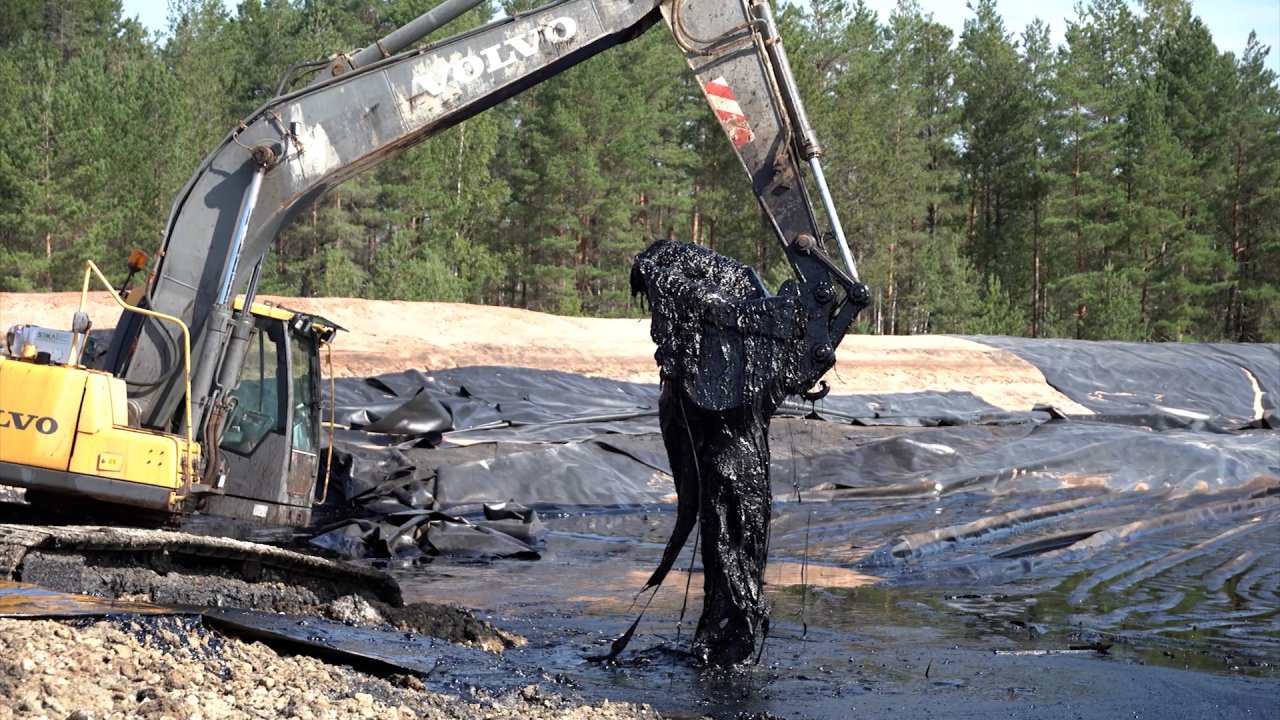The State Environmental Service (SES) has implemented one of the largest and technologically most complex environmental projects in Latvia to date, cleaning up the Inčukalns acid tar ponds of historical contamination - hazardous waste, thus preventing the release of contamination into the soil and groundwater. In total, the project has returned ~8.4 hectares of land to economic use. The remediation project ended in December 2023.
The second phase of the remediation of the historically contaminated Inčukalns acid tar ponds resulted in the restoration of 5 ha of land (including the area of both contamination sources (ponds) where remediation works were carried out). The project also burnt a total of ~ 49 000 tonnes of secondary fuels derived from hazardous waste from the tar production process.
As from 2024, the project will be monitored for a further five years. In addition, the SES will continue to monitor environmental quality for 30 years after the completion of the project, using the post-remediation monitoring system established in both the South and North Ponds.
"The Inčukalns acid tar pond remediation project was ambitious and complex, as well as technically challenging, so I am really pleased with what we have achieved. Such a project can only be realised with the cooperation of a number of stakeholders - business and public institutions, all demonstrating a common understanding of the environment and environmental protection requirements. The implementation of the Gudron Ponds remediation project is also an important step in the development of the SES - we have strengthened our competence in remediation of contaminated sites, which will significantly improve our ability to organise similar projects in the future. By cleaning up the historical contamination, nature has been given the opportunity to recover, which is the most important benefit of the project," said SES Director General Andris Ķēniņš.
The remediation works have been carried out within the framework of the successful implementation of the European Regional Development Fund (ERDF) project "Remediation of Historically Contaminated Sites "Inčukalns Acid Tar Ponds", Phase II", the total funding of which exceeded EUR 29.7 million, 85% of which was financed by the ERDF and the rest by the state budget.
